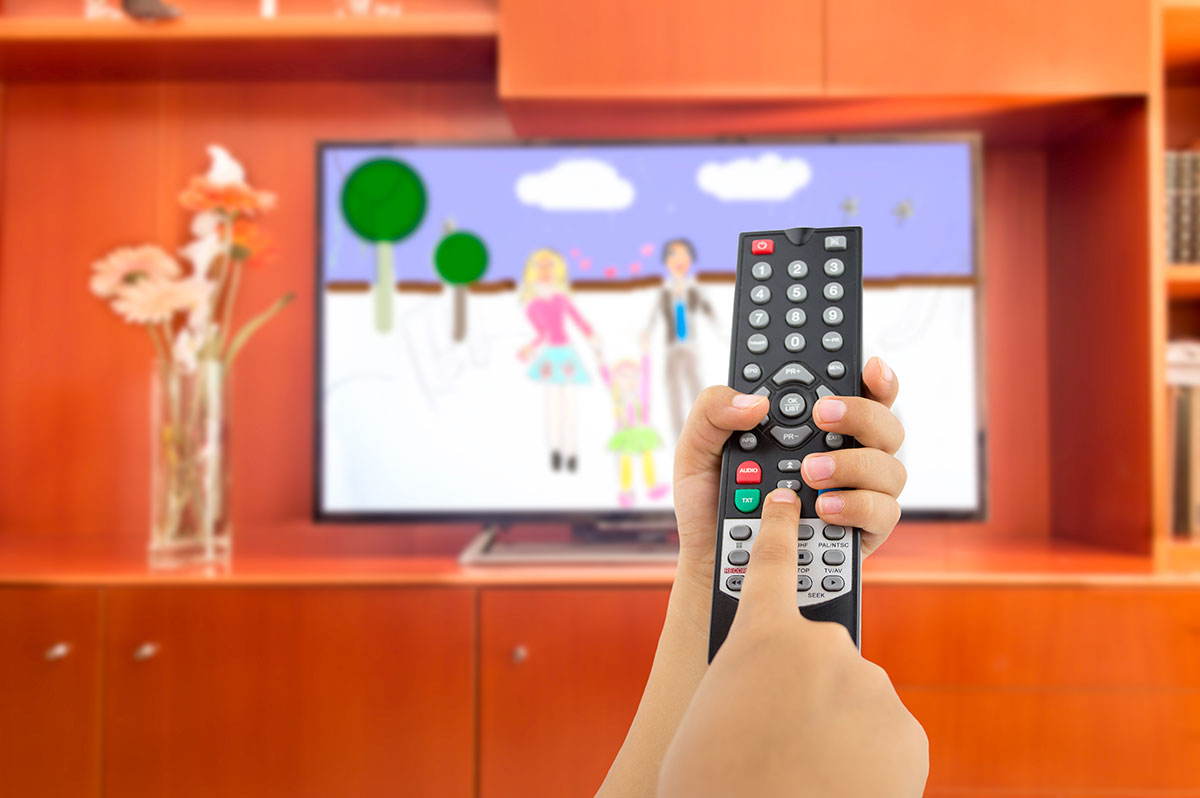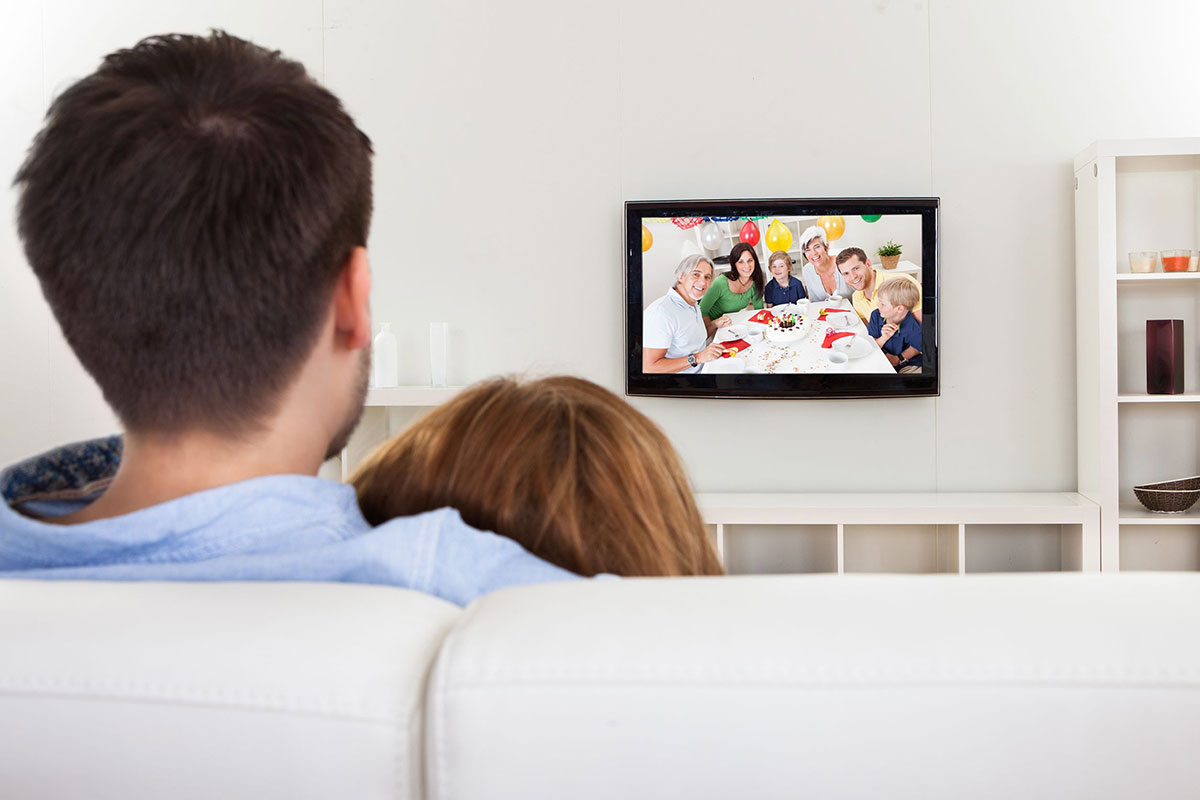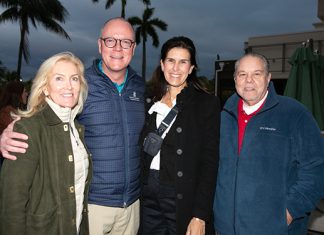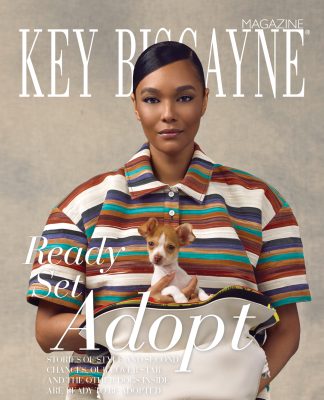 I will be the first to admit it: We were a TV family. Battered about by the abuses of our day, weary from the slings and arrows of the world, if there was one place my small family could find solace, it was parked evenly in front of the tube, laughing, loving and reflecting while Carlton and Will, Tim “The Toolman” Taylor and his calamitous clan, Roseanne and Alf and all the other charming characters constructed for Primetime programming portrayed life in a world vastly similar to ours, differing only perhaps in the percentage of on-queue laugh tracks. Unbeknownst to us, running subtly, sinuously, between the raunchy retorts of The Fresh Prince Of Bel-Air’s sassy butler Geoffrey and the caustic comments of Married With Children’s Al Bundy, lay a social commentary stunning in its influence.
I will be the first to admit it: We were a TV family. Battered about by the abuses of our day, weary from the slings and arrows of the world, if there was one place my small family could find solace, it was parked evenly in front of the tube, laughing, loving and reflecting while Carlton and Will, Tim “The Toolman” Taylor and his calamitous clan, Roseanne and Alf and all the other charming characters constructed for Primetime programming portrayed life in a world vastly similar to ours, differing only perhaps in the percentage of on-queue laugh tracks. Unbeknownst to us, running subtly, sinuously, between the raunchy retorts of The Fresh Prince Of Bel-Air’s sassy butler Geoffrey and the caustic comments of Married With Children’s Al Bundy, lay a social commentary stunning in its influence.
In retrospect, it’s obvious today that so many of our pointed views on social issues — from gun violence to drug use to racial injustice — was fostered not by our government-mandated education or conversations with our parents and peers, but by the shows (and families) we watched every weekday night from 5 p.m.-7 p.m., wrapped tidily in half-hour packages of schlocky product placement and corny jokes about mother-in-laws. And, although it’s well outside the character of my millennial generation to proclaim so, we were far from the first to do it.
 Generations before, the 1960s through the mid ‘80s saw not only a golden age of social and civil reform, but some of the finest family-focused situational comedies to grace a cathode ray tube. The Andy Griffith Show, The Brady Bunch and Diff’rent Strokes, all showed a seriously skewed conception of family not limited to the nuclear norm, broadcast when our nation was questioning some of its most basic ideas of identity. Influenced and predicted by this everyman’s artform, who didn’t smirk knowingly when Sheriff Andy Taylor stumbled upon Opie’s hijinks, or elbow each other when Alice threw her back out or Marcia! Marcia! Marcia! was famously hit by that infamous football in the nose. Who amongst that generation (and the subsequent generations binge-watching a steady stream of still-relevant reruns) did not guffaw each and every time Gary Coleman’s character said “Whatchu talkin’ ‘bout, Willis?” all the while unknowingly learning lessons about the pitfalls of single parenthood, the strength that can comes from a mixed marriage in an age of increasing divorce and remarriage and the struggles of minorities in mainstream American society?
Generations before, the 1960s through the mid ‘80s saw not only a golden age of social and civil reform, but some of the finest family-focused situational comedies to grace a cathode ray tube. The Andy Griffith Show, The Brady Bunch and Diff’rent Strokes, all showed a seriously skewed conception of family not limited to the nuclear norm, broadcast when our nation was questioning some of its most basic ideas of identity. Influenced and predicted by this everyman’s artform, who didn’t smirk knowingly when Sheriff Andy Taylor stumbled upon Opie’s hijinks, or elbow each other when Alice threw her back out or Marcia! Marcia! Marcia! was famously hit by that infamous football in the nose. Who amongst that generation (and the subsequent generations binge-watching a steady stream of still-relevant reruns) did not guffaw each and every time Gary Coleman’s character said “Whatchu talkin’ ‘bout, Willis?” all the while unknowingly learning lessons about the pitfalls of single parenthood, the strength that can comes from a mixed marriage in an age of increasing divorce and remarriage and the struggles of minorities in mainstream American society?
 Similarly, popular ‘80s sitcoms like ALF, Who’s The Boss and Charles In Charge offer analytical viewers a perfect peek into this phenomenon, rife as they are with that singularly odd character type: The male housekeeper. Birthed in the same era that saw the first woman elected to the Supreme Court and record numbers of women entering (and excelling) in the labor pool, these sitcoms pivoted traditional gender roles on their heads, without any of the fantastical fallout predicted by staunch traditionalists. Instead of the very fabric of our society falling apart at the seams, life continued as usual, punctuated with the chortles and struggles of any other Primetime television show. These shows, and so many like them, told us that, no matter what our family looked like, or what they would morph into in the future, we could overcome, we would be OK. And shows like The Mary Tyler Moore Show, Murphy Brown, Seinfeld and Friends reminded us that in truth, the definition of family is a lot broader than we thought, sometimes comprising more of the people we choose to spend time with than our nearest genetic links.
Similarly, popular ‘80s sitcoms like ALF, Who’s The Boss and Charles In Charge offer analytical viewers a perfect peek into this phenomenon, rife as they are with that singularly odd character type: The male housekeeper. Birthed in the same era that saw the first woman elected to the Supreme Court and record numbers of women entering (and excelling) in the labor pool, these sitcoms pivoted traditional gender roles on their heads, without any of the fantastical fallout predicted by staunch traditionalists. Instead of the very fabric of our society falling apart at the seams, life continued as usual, punctuated with the chortles and struggles of any other Primetime television show. These shows, and so many like them, told us that, no matter what our family looked like, or what they would morph into in the future, we could overcome, we would be OK. And shows like The Mary Tyler Moore Show, Murphy Brown, Seinfeld and Friends reminded us that in truth, the definition of family is a lot broader than we thought, sometimes comprising more of the people we choose to spend time with than our nearest genetic links.
 Buoyed on by an increasingly aware viewing audience eager for positive role models in all shapes, sizes, colors and orientations, today’s family sitcoms offer the masses a laughable, lovable doppelgänger. ABC’s Modern Family, Blackish and Fresh Off The Boat, all offer a powerfully inclusive vision of what life in America really looks like, carefully contrasted with the Leave It To Beaver cookie-cutter Cleavers some might wish it to be. Bold and liberating in their subject matter and entertaining to boot, such programming may hold the keys to actual social change, displaying families of varied appearance but mutual tribulation. It seems to be only within the context of situational comedies that we can actually have a conversation about the hateful forces that seek to weaken our national bond, perhaps because they’re packaged in a vehicle far and away from the political parties that seem to get everyone so riled up. Sitcoms are a safe space, and, like their subjects, are a family affair. Another interesting note: This medium does not just influence and take the temperature of the culture we abide in, but the very industry itself; the recent resurrection of the ingeniously inventive Arrested Development and the creation of such traditional treatises as The Ranch and Grace & Frankie by Netflix’s streaming service prove that traditional networks no longer have the final say on what does or does not air at home and abroad.
Buoyed on by an increasingly aware viewing audience eager for positive role models in all shapes, sizes, colors and orientations, today’s family sitcoms offer the masses a laughable, lovable doppelgänger. ABC’s Modern Family, Blackish and Fresh Off The Boat, all offer a powerfully inclusive vision of what life in America really looks like, carefully contrasted with the Leave It To Beaver cookie-cutter Cleavers some might wish it to be. Bold and liberating in their subject matter and entertaining to boot, such programming may hold the keys to actual social change, displaying families of varied appearance but mutual tribulation. It seems to be only within the context of situational comedies that we can actually have a conversation about the hateful forces that seek to weaken our national bond, perhaps because they’re packaged in a vehicle far and away from the political parties that seem to get everyone so riled up. Sitcoms are a safe space, and, like their subjects, are a family affair. Another interesting note: This medium does not just influence and take the temperature of the culture we abide in, but the very industry itself; the recent resurrection of the ingeniously inventive Arrested Development and the creation of such traditional treatises as The Ranch and Grace & Frankie by Netflix’s streaming service prove that traditional networks no longer have the final say on what does or does not air at home and abroad.
Any conversation about the state of the media in America inevitable reaches one subject no one really wants to discuss: I am speaking, of course, of Snookie. The runaway trend known as reality television has, in the last decade, supplanted the traditional sitcom both in viewership and theme. This, we are told, is reality: pettier than the pettiest villain, more cartoonish even than actual cartoons. Devoid of protagonists and Average Joe’s, every character instead seeks to be as off-the-cuff and outlandish as possible, a genre unfortunately typified by too many Kramers with not a Jerry in sight. The irony, of course, being that this is far from reality; it’s an airbrushed and copy-edited pantomime of the above, a brash orgy of social media-style shade-slinging entirely uncomplicated by such “unreal” things as theme, plot and morality. This, of course, is the greatest lie of the medium; I have never thrown a glass of wine in a so-called friend’s face due to her badmouthing to another so-called friend my absolutely awful R&B single.
I have, however, thrown balls in the house, been influenced by peer pressure, been bullied, been raised by a single parent, and learned, both from the situational comedies of my youth and my own experience, important lessons as a result. I have, in the face of adversity, much like Eddie Winslow, Richie Cunningham and DJ Tanner before me. Where, exactly, did you say reality was again?











